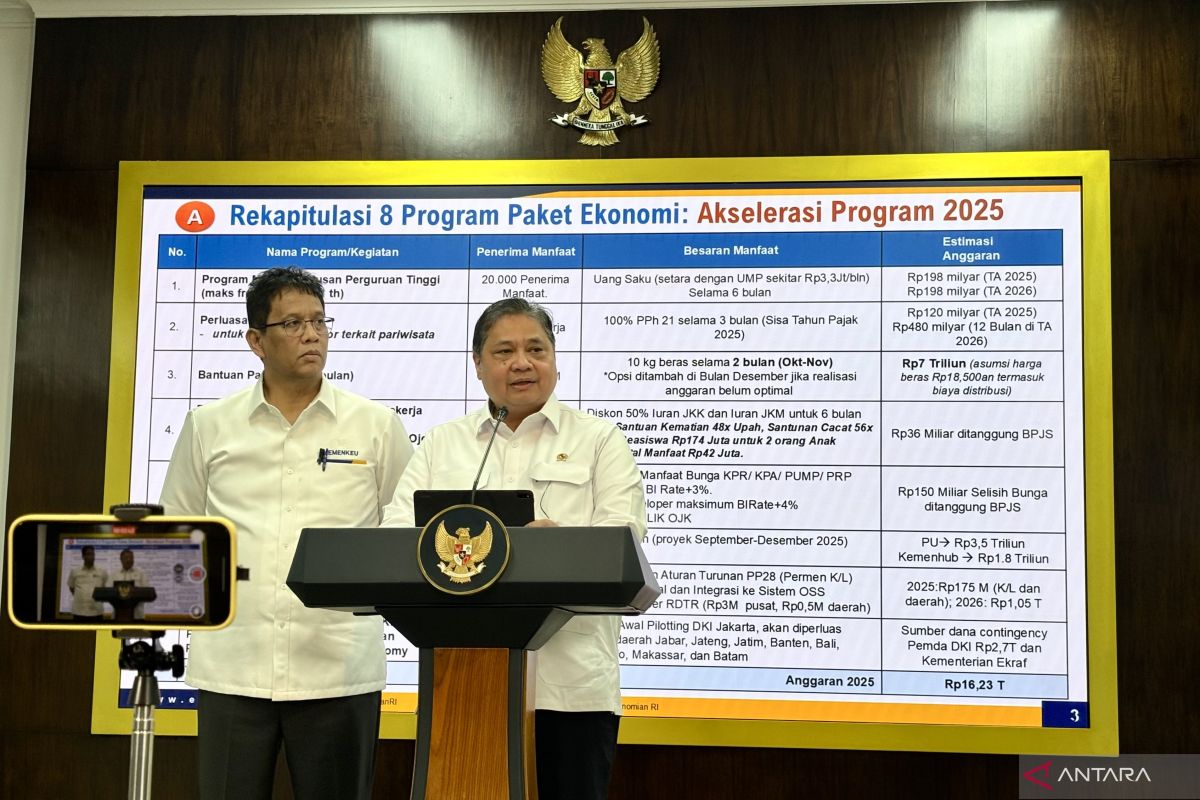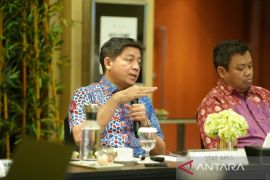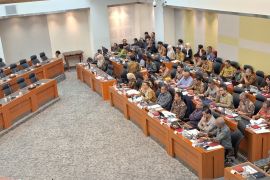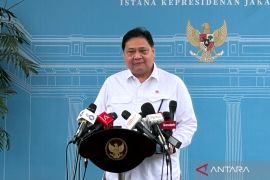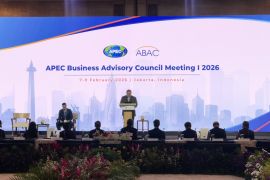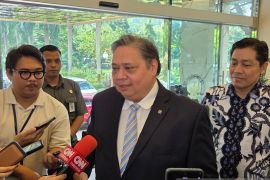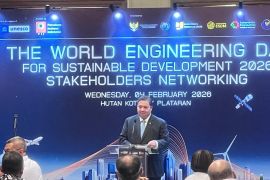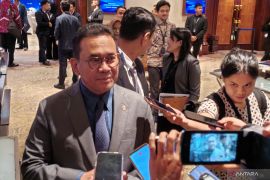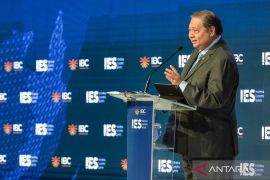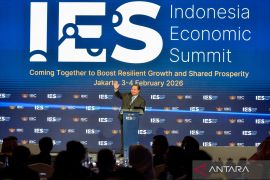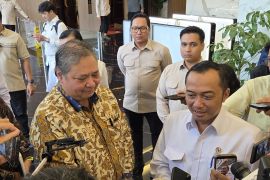In a press conference at the Presidential Office on Monday, Hartarto explained that the 2025 Economic Package Program comprises eight programs to be accelerated in 2025, four programs to continue into 2026, and five programs aimed at absorbing the workforce.
The first accelerated program is an internship program for college graduates, targeting those within one year after graduation.
“We will link and match fresh graduates in collaboration with the industrial sector,” he said.
The program offers 20,000 internship quotas, with participants receiving a monthly stipend equal to the provincial minimum wage (UMP) of Rp3.3 million (US$195) for six months.
The total budget allocated is Rp198 billion (US$11 million).
The second program covers Article 21 income tax (PPh) for workers in the tourism sector, expanding from previous coverage for labor-intensive sectors.
“This program will cover tourism, hotel, restaurant, and cafe sectors. The target is 552,000 workers, receiving 100 percent PPh coverage for the remaining three months of the 2025 tax year, with a budget of Rp120 billion (US$7 million),” Hartarto said.
The third program provides food aid for October–November, distributing 10 kilograms of rice per beneficiary, with a total budget of Rp7 trillion (US$414 million).
The fourth program assists with work-related accident (JKK) and death insurance (JKM) contributions for non-wage workers, including freelancers, online motorcycle taxi drivers, couriers, and logistics workers.
“The target is 731,361 recipients, with a 50 percent discount on JKK and JKM contributions,” the minister confirmed.
BPJS Ketenagakerjaan (Employment Social Security Agency) has allocated Rp36 billion (US$2.1 million) for these contributions. Hartarto detailed the benefits: death benefits of 48 times wages, disability benefits of 56 times wages, scholarships of Rp174 million (US$10,000) for two children, and a death benefit totaling Rp42 million (US$2,486).
The fifth program provides home purchase assistance through BPJS Employment.
“The interest rate has been lowered from the BI rate plus 5 percent to BI rate plus 3 percent. The Financial Services Authority (OJK) has relaxed the SLIK (Sharia Loan) system, and developer loan rates have also been reduced from BI rate plus 6 percent to BI rate plus 4 percent,” Hartarto said.
The program targets 1,050 housing units with a total budget of Rp150 billion (US$8.8 million).
The sixth program provides wage assistance for labor-intensive sectors, distributed by the Ministry of Transportation and the Ministry of Public Works. The number of recipients is 609,465 for the September–December period, with Rp1.8 trillion (US$106 million) allocated to the Transportation Ministry and Rp3.5 trillion (US$207 million) to the Public Works Ministry.
The seventh program focuses on accelerating deregulation under Government Regulation (PP) Number 28 of 2025, including derivative regulations and integration of the digital RDTR (Regional Land and Building Information System) into a single OSS system.
Finally, the government is improving housing quality and providing marketing platforms for MSMEs and gig economy workers, with the initial phase implemented in Jakarta.
Related news: Islamic economy seen as key driver of Indonesia's future growth
Related news: President Prabowo pushes cooperatives as key to Indonesia’s economy
Related news: Indonesia pushes youth to prepare for future careers in green economy
Translator: Genta Tenri Mawangi, Resinta Sulistiyandari
Editor: M Razi Rahman
Copyright © ANTARA 2025
